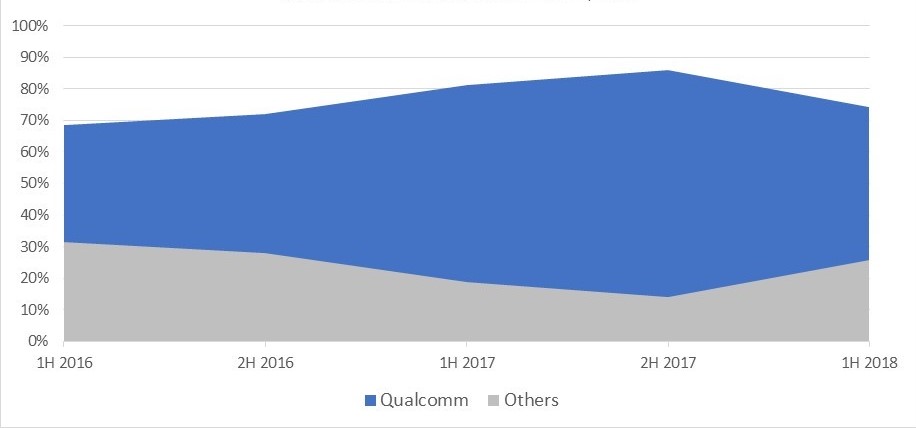The application processor (AP) or the system-on-chip (SoC), is the most critical component in a smartphone. This is what makes your smartphone a “smart” phone, by giving it the ability to perform a variety of tasks in parallel. The smartphone application processor industry is dominated by Qualcomm with its Snapdragon line of processors, but major smartphone OEMs (Original Equipment Manufacturers) like Apple, Samsung and Huawei are pivoting towards a more vertically integrated approach by using in-house designed SoCs.
There are multiple benefits in developing an in-house SoC ranging from cost benefits, tight control on the software to integrate new technologies. Major OEMs understand that the SoC can be a differentiating factor for them in an already crowded smartphone market that is gasping for innovation.
But it is not easy or cheap for a smartphone OEM to develop its own SoC. Different paths have been taken, including: acquisitions (PA Semi, Passif, Intrinsity, etc); so-called acqui-hires of smaller companies and their staff; poaching key R&D executives; external consulting costs; IP licensing from ARM and others; investment in tooling; software and much more, accrued over the years.
Samsung and Huawei are increasingly using their in-house SoCs, challenging the incumbents like Qualcomm, MediaTek and Unisoc (Spreadtrum). Qualcomm and others are pushing back by betting on the growth of Chinese smartphone players like OPPO, vivo and others. The high cost of developing in-house SoCs is likely to keep most OEMs away from doing so and to remain dependent on existing suppliers.
Exhibit 1: Qualcomm Share in Xiaomi, OPPO, vivo

Source: Counterpoint Research Component Tracker Service
The first two products to market using TSMC’s latest 7nm process node are both SoCs produced by vertically oriented OEMs; Apple and Huawei. We are confident that Qualcomm will quickly catch-up and potentially leapfrog them, but it underlines that in-house SoC designers are not trailing, but in some cases, leading the market. With critical innovations around 5G coming rapidly, having close ties with leading AP vendors, or having deep in-house know-how, will be critical to remaining competitive.
Download the complete report with analysis from our research portal (click here).

